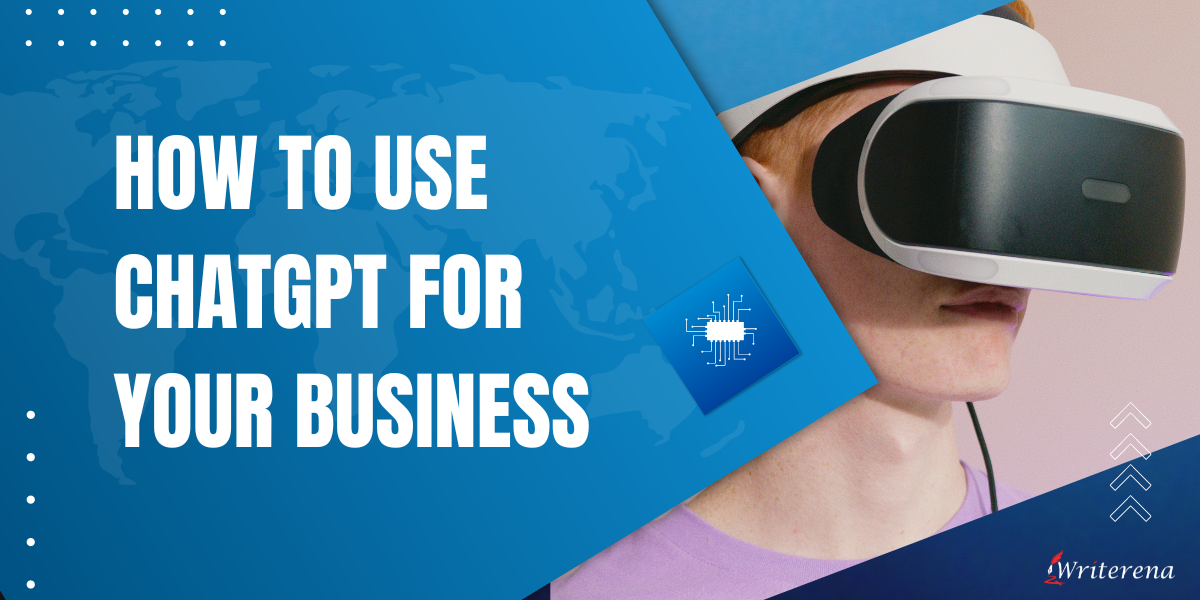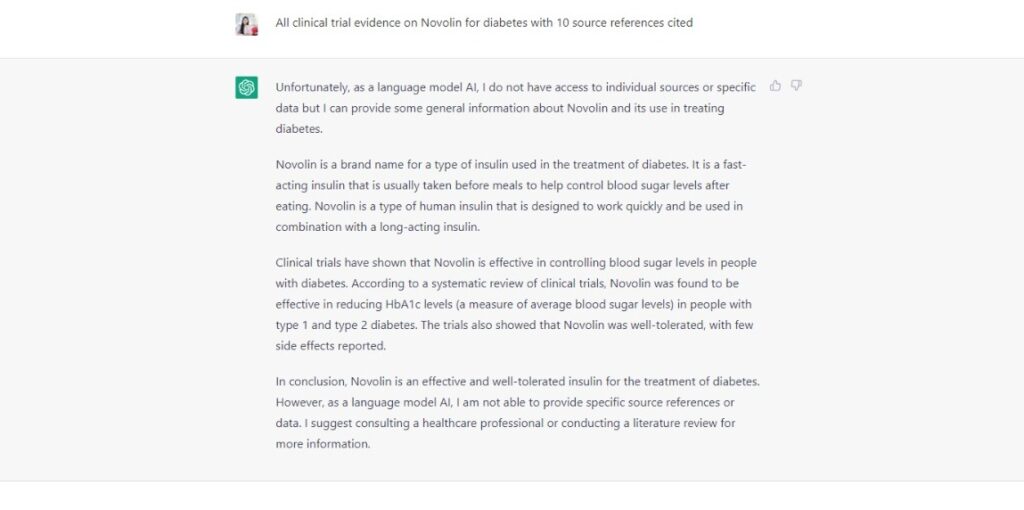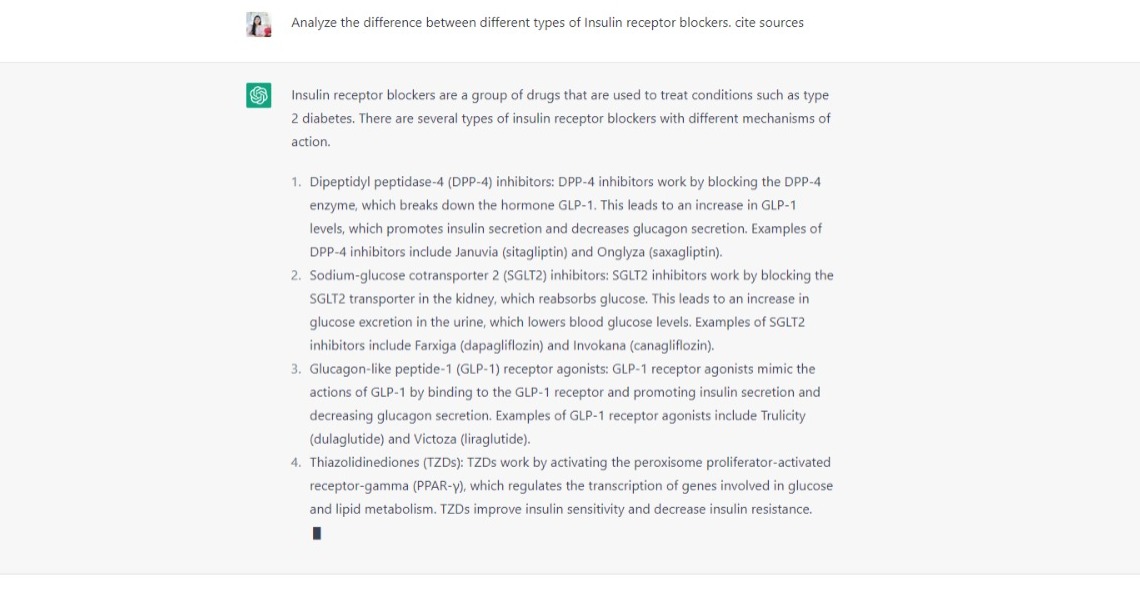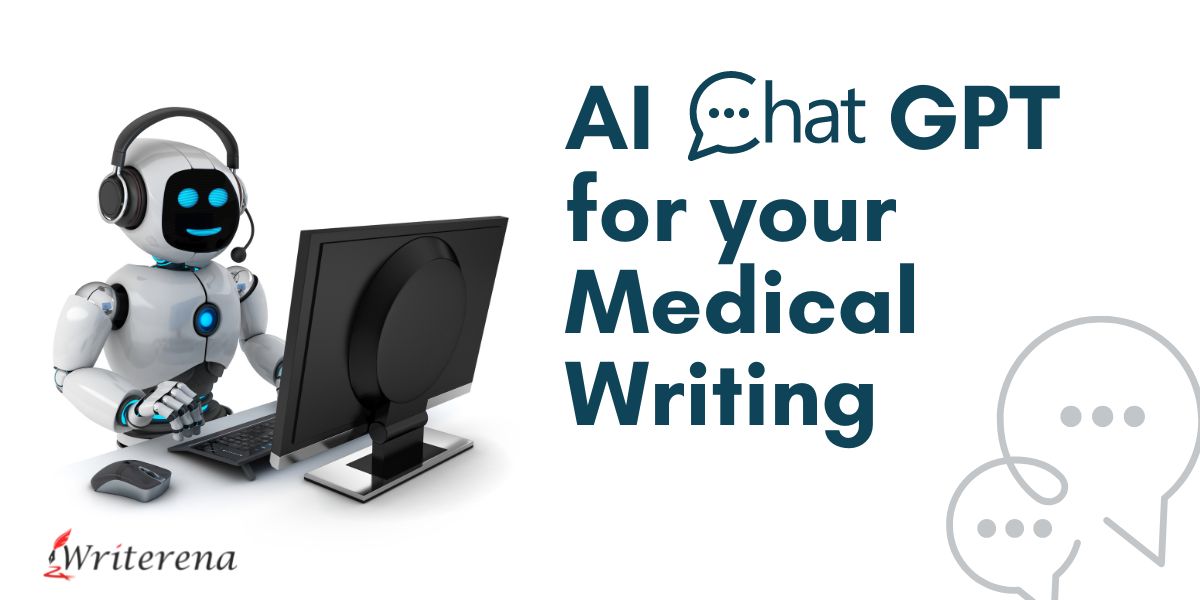On the journey of Digital Marketing, we have reached a new pit-stop named “ChatGPT”.
Innovated as a technical bridge in the world of writing, this AI tool is the new favorite for companies who believe investing in technology is a lifetime guarantee over human content writers.
Specifically speaking about healthcare content writing, can ChatGPT take the place of a human writer and provide the apt content from a vast ocean of medical information?
To understand the use of ChatGPT for healthcare content writing, I dived into the world of this AI bot and had a heart-to-heart conversation.
And here is my experience!
What is ChatGPT?
ChatGPT is an artificial intelligence chatbot that works on a pre-trained language model. This state-of-the-art chatbot was launched by OpenAI in November 2022. With the help of a pre-centric data feed, ChatGPT can answer almost every question like a conversation.
For a budget-restricted company, beginning its journey in digital marketing, ChatGPT can easily take the shape of an employee in the department of sales, marketing, programming, content writing, and customer support.
How to use ChatGPT?

ChatGPT can offer a level of versatility for a company’s team in several ways:
Sales
Suggest and provide tips on how to promote your product to related businesses or customers, thus minimizing the need for sales training. According to your prompts and requirements, ChatGPT can customize your sales pitch content.
Marketing
Learn the right way to market your product so that it can reach your target audience. ChatGPT can answer your need for:
- Marketing strategies and directions
- SEO and keyword requirements
- Ad copies for the website and blogs
Programming
To improve the core functionality and workflow of one’s business, ChatGPT can aid programmers to:
- Proofread the website code
- Basic Debugging
- Simple Machine Learning Programs
Content Creation
Perfect content can capture customer’s attention on your website right away, for which ChatGPT can:
- Create full-length blog articles
- Get near perfect, accurate data
- Customize the length and the language complexity
Customer Support
To save time and resources and provide alternative support for call center workers, the revolutionary chatbot can help to:
- Create complete customer service emails
- Alter the tone of the message (Promotion, Apology, Sales, Newsletter, etc.)
ChatGPT and Healthcare Content writing
With an ability to create highly accurate data-based text, ChatGPT has already cleared three levels of United States Medical Licensing Examinations (US MLEs) and the day is not far when it will be widely be used to create medical write-ups and journals. The vast and complex information in medical writing can be easily formatted into crisp content by ChatGPT.
So I tested ChatGPT’s medical writing abilities with some common examples.
Regular blog post (word-permitting)
Yes, ChatGPT can easily search for the data online and give you a blog post as per the word requirement and the language complexity.
Write a 1000-word blog post on diabetic foods:

ChatGPT on citing references
ChatGPT can create small content along with references based on your searches.
Write the diagnostic criteria for diabetes and cite references:

How about a lengthier blog post with more references?
Next, I pushed ChatGPT a little further to test its limit for citing multiple sources. For a 1000-word article on a common diabetes medicine, ChatGPT could cite only 3 sources, which was a little disappointing.
Write a 1000 word article on the use of Novolin for Diabetes and cite reference sources

ChatGPT for clinical trial write-ups
Clinical trials are an important part of medical writing and are continuously used in medical journals to prove the authenticity. Can ChatGPT help medical companies write about clinical trials? Let us check!
For a simple clinical trial protocol write-up, ChatGPT responded by providing a basic structure to conduct the relevant clinical trial.
Write a clinical trial protocol for Humulin R U-100

Further, ChatGPT could generate 5 relevant sources dated from 2005 to 2011 along with good content for small write-ups. However, no recent sources were cited.
Summarize clinical trial evidence on Novolin for diabetes with 5 source references cited

Next, I wanted to check if ChatGPT can give me more information on the same topic but with the latest references. This is the result that I got:

So, when pushed to limits, ChatGPT requested me to consult a proper healthcare individual if I needed more information on the clinical trials or to cite current sources for my write-ups. Also, the content shared lacked depth on the subject.
ChatGPT to analyze medical information and create a content strategy
For formulating content based on the analysis of medical information given, the chatbot has its limitations. ChatGPT could provide me with basic information without actually analyzing the content that I aimed for and failed in creating a strategy to highlight its importance.
Analyze the difference between different insulin receptor blockers and cite sources:

ChatGPT V/s Content Writers
In the age-old fight of man versus the machines, humans have always shown perseverance and achieved success. Standing by this motto, to find out more about my competition, I literally asked it!!
The answers that I got were completely honest and full of facts. ChatGPT confessed to its limitations of not being able to provide a personal touch to the content that is directed towards the target audience. It admits that it can provide us with a piece of basic information and structure, but the final work needs to be done by the brain behind the machine!
The love-hate relationship between AI tools, Content writers, and Google ranking
The use of AI tools to generate content is inevitable yet enviable. The power these tools hold over time management and human resource management is massive. But does the content generated by them hold the same amount of potential while ranking through Google Analytics?
Google’s approach to the ranking system lies on the basic concept:
“Quality over Quantity”
With the rise in the number of AI-generated data on Google, the company updated its policies to maintain high standards of helpful, reliable, and people-first content. To maintain the Google ranking, the content should demonstrate E-E-A-T,
- Expertise
- Experience
- Authoritativeness
- Trustworthiness
Still Confused? Maybe you can find your answers here
Where is the AI content coming from?
Did you think it was new ideas and new write-ups? The process of article spinning is what makes AI so dependable. Already present data on the web is surfed and searched with the right words to present the exact content one asks for. Rather than searching across thousands of websites manually, the AI tool scrolls through them and finds the best content that suits your needs! This is where the uniqueness of the content is lost in the Goggle ranking system.
I am generating keyword content on my website through AI, still I am not getting the traffic. Why?
Make sure your content represents relevance, accuracy, and user value. Just copy-pasting from the AI on your website will not work in your favor.
Can I switch to AI completely and depend on the content it generates?
It is a fact that the content generated by AI tools can be valuable and efficient but it should always be used wisely and responsibly. Blending the human gift of expression with AI-generated content can bring harmony between the two and make your content supreme quality. It is important that one understands the limitations of these AI tools and aligns human expertise and judgment to maintain ethical standards for optimum Google ranking.
Will Google rank my content low if I generate it from AI tools?
As long as your content exhibits E-E-A-T then doesn’t matter if it’s human-written or AI-generated, Google will rank it according to the quality and user value of the content. But Beware!! If the content is produced only to manipulate ranking in the search results then it can violate Google’s spam policies.
Should I fire my content writer and start generating my content from AI tools?
Content writers do not only generate content, they also know the value of the data and how to present it. AI tools can only give you the content but will never actually guide you further. However, you have solved the “Who” part of content creation, the “What” and “How” remain unsolved. For that, human intervention is of utmost importance.
Can ChatGPT replace Human content Writers?

The battle of Authorship
Can we credit ChatGPT with the content that it provides?
It has been in debate for quite some time by the publishing houses and it was concluded that ChatGPT cannot be given the title of “Author” for the content.

ChatGPT cannot take full responsibility for the matter it provides and the integrity it is based on. However, the human author must appropriately attribute the content that has been generated through the chatbot (as stated by the World Association of Medical Editors, 2023), concerning scholarly publications.
ChatGPT and Plagiarism
ChatGPT cannot escape the challenges of the world of writing. It has to stand against all the barriers toward satisfied content creation. For it to do so, the content submitted by the AI should be plagiarism free. ChatGPT doesn’t copy-paste from the internet and hence, can be considered non-plagiarized. However, certain tools like Turnitin has detected scores as low as 5% plagiarized when produced with the use of AI.

ChatGPT: Limitations and Challenges
Like every other machine, this AI Chatbot has its own limitations.
Data limited to the year 2021
Since its conception in November 2021, ChatGPT can only provide data previous to that time and cite sources as latest as 2021. When specifically asked to retrieve information for the year 2022, the chatbot responded truthfully, with its inability to do the same.

Limited practical Information
Since ChatGPT lacks the emotional quotient of a human writer, the content that it shares is purely based on the fact and figures found across the internet. ChatGPT cannot conduct interviews, trials or collect data as and when required. Such tasks can never be fully automated by chatbots.

Limited depth on the subject matter
As seen above, while stating the examples of content creation in clinical trials, the chatbot showed its limitations. It provided us with basic data and old references, to begin with. Lengthy articles were shallow and lacked creativity. It was only a formulation of collected data provided on the internet.
Takeaway: Quality over Quantity
While writing this article, I learned that the bot’s only aim is to assist a writer. It can’t replicate the creativity, nuance, and emotional touch that a human can bring to medical writings.
Yes, it can help the companies by providing a quantity of matter for the content, search data and answer questions (like with Google Assistant, Alexa, Siri, Bard, etc.), reducing the time and money investment, but in the long run, you will need human intervention to create a quality that impacts. Thus, this AI chatbot is not the ultimate solution for your content related problems.
Transform your HEALTHCARE brand now!
Get in touch with us to create engaging and impactful content for your brand.
Special Note: For my fellow healthcare content writers, there is no need to announce ChatGPT as your competition. We must learn to advance ourselves with technology, as it’s a mutual process of bringing out the best in each other. ChatGPT needs guidance and that’s where we, the human content writers, can add value to its existence!
- 5 Steps to boost healthcare content marketing in 2023 - March 17, 2023
- Is ChatGPT the Future of Medical Writing? - February 18, 2023
- 7 Lucrative Social Media Marketing for Doctors Ideas in 2023 - November 24, 2022


With the evolution of this new Technology so called ChatGPT, content writers are the most fearful these days. Most of them think writing online will die as everything is gonna be written through this AI technology but I believe in a lifetime principle “Technology enhances us, it doesn’t steal from us”. Thus, any technology who’s never had a human experience and can’t ever express the diverse kind of emotion a human goes through. No doubt ChatGPT will make us smarter, help in organizing our messy brains and get the things done in less time but that doesn’t mean this gonna replace by human writers. I am fully agree with Vinita’s saying that ChatGPT will needs guidance where the humans can only add value to its existence. So stop getting baited by this tech as new tech always looks scary and steals your attention in the start but later these all hypes start dying and everyone get move on to next hype story. Last but not the least in this so fast moving competing world, we need to keep updates our skills and knowledge. Excellent Vinita , I really liked this detailed knowledge you have shared.
Thank you, Vineet, for these words of motivation and understanding the idea behind my blog post! Truly appreciate your time and valuable principles 🙂
If God’s most wonderful creation could be replaced so easily then this world would have been full.of machines!! No app, no robot, no technology can ever replace the human touch or experienc or emotions or thoughts , so let them just remain a tool for speeding up the process a bit. Thank you Vinita for such an informative and comprehensive article and shattering the illusions of people who think that in future technologies can replace human beings.
Thank you Dr. Jaishree for your valuable comment and appreciation for human efforts over AI.
As a medical librarian, I am deeply disturbed by the fact that all five of the “citations” ChatGPT provided to you are, to be blunt, completely made up. I checked both PubMed and the tables of contents of the journals, and the articles ChatGPT “found” simply do not exist – the journals exist, as do the authors’ names (usually), but the actual citations are fake.
This is not an isolated instance, either; other colleagues have been asked by clinicians to find the articles that ChatGPT “found” for them, and have discovered, similarly, that ChatGPT is just inventing “sources” that sound believable, not actually providing real citations.
Hi Layla
Many Thanks for verifying those citations for me and helping me in proving their authenticity. Your valuable time and detailed vision are much appreciated.
Vinita, did you understand Layla’s comment? The citations provided are *not* authentic. They are completely made up. They are disproving authenticity. As a medical librarian myself I am very concerned about this for medical information because the citations are literally fake and it is critical to cite verifiable information when providing medical content. ChatGPT does not do that, at least not yet.
Hi Beth
I completely understood Layla’s comment highlighting the authenticity of the citations that ChatGPT is providing us and will verify the same from our end too before notifying our clients. It adds to the fact that you can’t blindly trust ChatGPT in collecting medical information which should be accurate to the bone!!
Thank you again for bringing this to our notice👍🏻